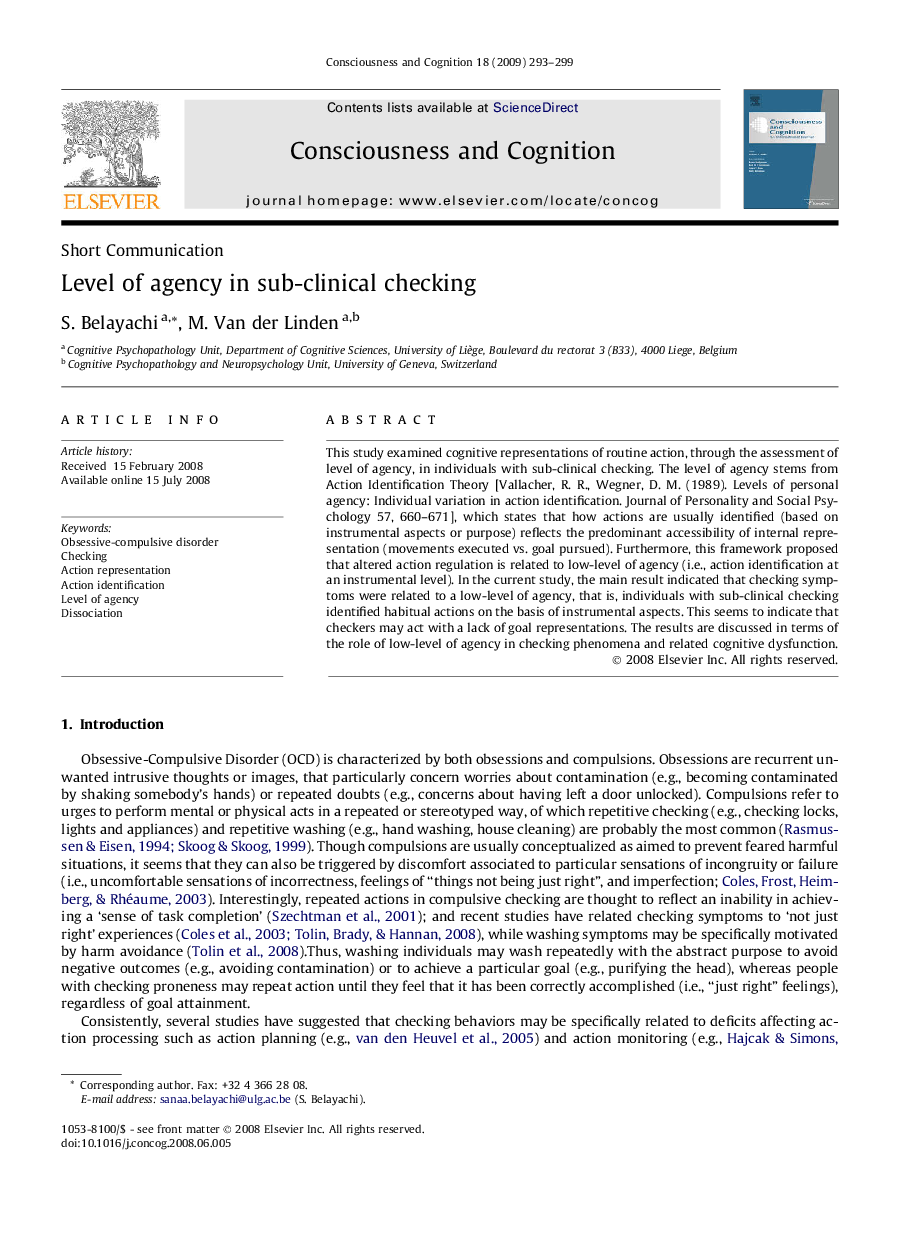| Article ID | Journal | Published Year | Pages | File Type |
|---|---|---|---|---|
| 927875 | Consciousness and Cognition | 2009 | 7 Pages |
This study examined cognitive representations of routine action, through the assessment of level of agency, in individuals with sub-clinical checking. The level of agency stems from Action Identification Theory [Vallacher, R. R., Wegner, D. M. (1989). Levels of personal agency: Individual variation in action identification. Journal of Personality and Social Psychology 57, 660–671], which states that how actions are usually identified (based on instrumental aspects or purpose) reflects the predominant accessibility of internal representation (movements executed vs. goal pursued). Furthermore, this framework proposed that altered action regulation is related to low-level of agency (i.e., action identification at an instrumental level). In the current study, the main result indicated that checking symptoms were related to a low-level of agency, that is, individuals with sub-clinical checking identified habitual actions on the basis of instrumental aspects. This seems to indicate that checkers may act with a lack of goal representations. The results are discussed in terms of the role of low-level of agency in checking phenomena and related cognitive dysfunction.
